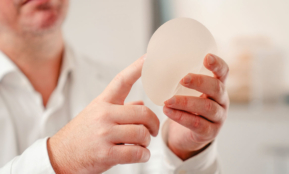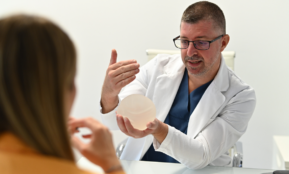Aesthetics
Face
The most modern facial treatments help you look younger, more elegant and happier.
Body
Feel comfortable in your body and correct sources of discomfort.
Chest
Make your wish for a better appearance come true and restore your self-confidence with aesthetic correction.
Hair and scalp
Minimally invasive solutions for hair loss and a natural look.
Issues
Find solutions to some of the most common aesthetic problems.
Treatments
Treatments
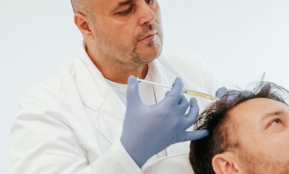
Hair and scalp mesotherapy
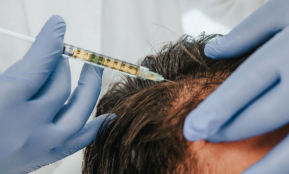
Thinning hair therapy with your own blood

Trichotest – DNA analysis of hair loss and baldness

Hair loss in women – causes and how to prevent it

Hair loss in men – causes and how to prevent it
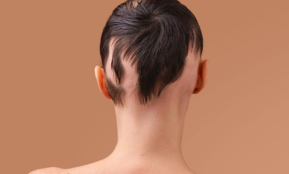
Alopecia – hair loss
FACE
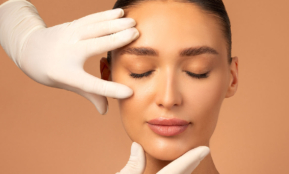
BODY
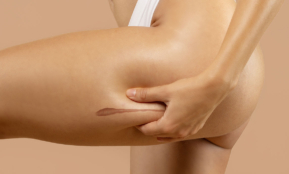
Implantology Center
Different methods of solving the problem of missing one or more teeth.
Prosthetics
The most common solution in cases of functional or aesthetic tooth damage.
Aesthetic Dentistry
Harmonious tooth shaping and tooth color correction according to your wishes.
General Dentistry
Modern and timely diagnostics, treatment and dental hygiene are the key to the health of your teeth.
Issues
Find solutions to some of the most common aesthetic problems.
About us
Locations
Causes of skin peeling
-
Dry skin
The most common cause of peeling skin is dry skin (also known as xerosis). When skin loses moisture, it becomes dry and more prone to peeling. Winter air, central heating, hot showers and unsuitable beauty products can dry out the skin and cause it to peel.
-
Sunbathing and sunburn
Excessive sun exposure can cause sunburn, which results in the skin peeling as it naturally tries to repair damaged cells. This process is the skin's natural way of healing, but it can be irritating and painful.
-
Eczema (atopic dermatitis)
Eczema is a chronic condition that causes inflammation, redness, and peeling of the skin. It most commonly occurs on areas such as the face, hands, and feet, and symptoms include itching, dryness, and thickening of the skin.
-
Psoriasis
Psoriasis is an autoimmune disease that causes the skin to overproduce rapidly, leading to the formation of thick, dry, scaly plaques. The scaling in psoriasis usually appears as silvery scales on the skin.
-
Fungal infections
Fungal skin infections, such as tinea corporis (ringworm) or candidiasis, can cause peeling and redness of the skin. These infections are usually accompanied by other symptoms such as itching, inflammation, or red spots.
-
Allergies
Skin reactions to allergens, such as certain fabrics, cosmetics or food, can cause irritation and peeling. Allergic contact dermatitis is a common reaction that causes redness, rash and peeling.
-
Medicines
Certain medications, including topical acne treatments (such as benzoyl peroxide or tretinoin), chemotherapy, or some antibiotics, can cause dry and peeling skin as a side effect.
Symptoms that accompany skin peeling
-
Itching
Dry skin often causes intense itching, which can worsen the peeling if the skin is picked at.
-
Redness and inflammation
In addition to peeling, the skin may be red, swollen, or inflamed, which is usually a sign of irritation or an allergic reaction.
-
Rash and spots
Some skin conditions, such as eczema or psoriasis, can cause a rash in the form of red, scaly patches.
-
Swelling
In cases of allergic reactions or infections, the skin may become swollen and the peeling areas may be painful.
How to treat peeling skin?
-
Hydration
The most important step in the treatment of dry and flaky skin is hydration. Using moisturizers or lotions that contain ingredients like hyaluronic acid, glycerin, ceramides, and aloe vera can help restore skin's moisture. Apply moisturizing products immediately after showering to lock in moisture.
-
Avoiding irritations
Use mild, non-aggressive products to clean the skin, such as mild gels or soaps without fragrance and alcohol. Avoid using products that contain alcohol or fragrances, as they can further irritate the skin.
-
Using sun protection
If the peeling skin is caused by sunburn, it is important to use products with a high protection factor (SPF 30 or higher) to prevent further skin damage. Also, avoid sun exposure until the skin recovers.
-
Treatments for specific skin diseases
If peeling skin is caused by a condition such as eczema, psoriasis, or a fungal infection, it is recommended to consult a dermatologist who will recommend specific treatments, such as corticosteroid creams, antifungal agents, or topical treatments that soothe inflammation.
-
Drinking enough water
Dehydration can make the skin worse, so it's important to drink enough water to keep the skin hydrated from the inside out.
-
Natural treatments
Some natural remedies like coconut oil, honey, or oatmeal baths can soothe and moisturize the skin, helping to reduce flaking.


